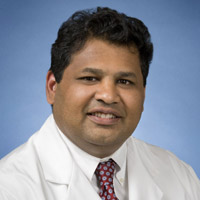Home > AGA Leadership > Council & Sections > Pancreatic Disorders
Pancreatic Disorders
Members interested in participating in the activities of the AGA Institute Council Pancreatic Disorders Section should contact us at [email protected]. We are especially interested in increasing participation of junior investigators, clinicians and international members.
Mission Statement and FOCI
The AGA Institute Council Pancreatic Disorders Section is dedicated to presenting the most up-to-date clinical and basic science information to as many dedicated members as possible. It provides an all-inclusive group of experts as speakers, who are whetted out by large number of stakeholders and peer reviewed on the best platform in the world.
Members will be heard on this platform for their needs, views and aspirations.
The section has made significant strides in the last two years by increasing the abstract submission by roughly 30 percent and by increasing membership and international participation. This was done through a broad inclusion of numerous colleagues in a variety of roles, including serving as poster judges, serving on poster rounds and as advisory councillors.
The section has continued to focus on translational sessions (highly popular clinical topics with cutting-edge basic science counterparts) to increase basic science membership and participation.
The creation of NIH-focused themes and participation from NIH speakers will help lead to more NIH funding for pancreatic diseases. The best clinical and basic science research and symposia should be in the pancreatic disorders section. Additionally, the section should include the best junior and senior GI talent in the world.
Areas of focus
- Predicting the severity of acute pancreatitis, refining interventions and developing new drugs for treatment.
- Defining the relationship between chronic pancreatitis, diabetes and pancreatic cancer.
- Determining the mechanisms, risk factors and prevention of post-ERCP pancreatitis.
- Defining indications and outcomes for total pancreatectomy with islet auto transplantation (TPIAT).
- Evaluating the positive and negative impact of alcohol on the pancreas and liver.
- Creating advances in pancreatic endoscopy including EUS, confocal laser micro-endoscopy, per-oral pancreatoscopy, cholangioscopy and combined EUS/ERCP intervention.
- Understanding cellular crosstalk between acinar, ductal, islet and stellate cells in the pathogenesis of pancreatic disease.
- Finding new advances in cross-sectional and nuclear medicine imaging of the pancreas.
- Determining he role of CFTR in normal exocrine and endocrine function and the role of mutations in the pathogenesis of pancreatitis and diabetes mellitus.
- Exploring recent advances in the diagnosis and treatment of neuroendocrine tumors of pancreas.
Council Leadership

VIKESH SINGH, MD, MSc
Chair
Johns Hopkins Hospital Division of Gastroenterology

V. RAMAN MUTHUSAMY, MD, MAS, AGAF
Vice Chair
UCLA Medical Center Program











